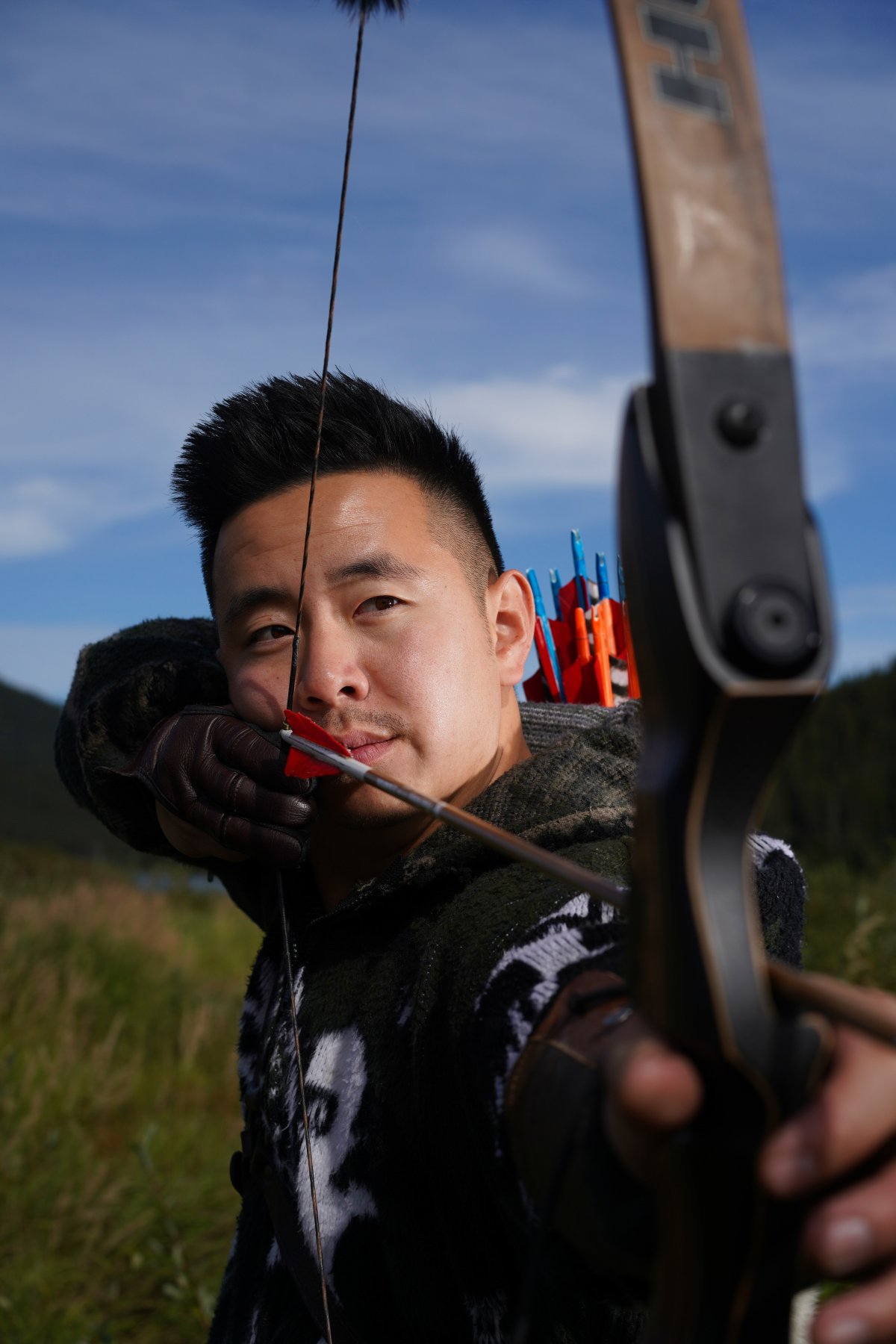Contestants on Season 9 of History’s Alone, the outdoor survival reality show unlike anything else on television, face a new threat that might be the most unnerving yet.

The brave competitors will once again be dropped into a remote region — allowed to bring only 10 survival items from a pre-approved list — and will work to outlast one another to claim the $500,000 grand prize.
But, this season, they won’t just be doing the hunting; for the first time ever, they’ll also be the hunted.
The remote wilderness of Labrador, where Season 9 takes place, has plenty of challenges to overcome, including the unique threat of polar bears.
This season features two Canadian contestants, one of them being Teimojin Tan.
Tan, 31, grew up in Montreal and has travelled the world. When he was 17, he joined the Canadian Army Reserve and took a special interest in Cold Weather Warfare and Survival. From there, he pursued medical school and is now working on the Bruce Peninsula in Ontario in the areas of emergency and hospital medicine.
He also specializes in wilderness medicine, using his medical training and knowledge of Indigenous medicines and practices to teach people how to prepare for and to overcome illness and injury in remote, austere environments.
The 10 items Tan selected to bring on his survival journey were a sleeping bag, an axe, a multitool, a ferro rod, a two-quart pot, a bow and arrows, paracord, trapping wire, fishing line and hooks and emergency rations.
Global News spoke to Tan over the phone about his experience in Labrador (the show has already completed production, but no spoilers here!), how his training helped him in the wild and how real the threat of polar bears felt while out there all alone.
Global News: Up until this point, what’s the biggest survival challenge you’ve done?
Teimojin Tan: I’ve done a lot of solo trips, typically two weeks at a time, some in tropical environments and some in colder environments as well.
Looking back on your Alone experience, would you have changed any of the 10 items you brought with you?
For the specific environment I was in, I would not have changed my choices. I was very comfortable with my items. The axe that I brought out there I’ve had for almost 10 years now, so it was like an old friend. Although some of my equipment wasn’t the newest or the best… I’d put it through the wringer in the military, so they were items I trusted.
What did you do to prepare to be on the show?
Any preparation for a hunt or expedition that requires you to hunt, your knowledge and skills need to be up-to-date and really precision-sharp. I’d been practising with my recurve bow I’ve been shooting for seven years, so just a lot of target practice and research on fishing and fishing techniques. I practised a lot of primitive trapping techniques, too.
My metabolism is very fast and it’s really hard for me to put on weight so I went on an all-American diet and put on an additional 20 pounds before I left for the show.
What was the biggest challenge you faced on the show?
For me, unlike some of the people on the show, I hadn’t hunted before. I’d shot my bow many times for target practice but never intentionally to take something for food. To do that is incredibly daunting. Not only from a skill perspective, but also from a taking-a-life perspective. To take the life of a cute, fuzzy animal was a huge, huge challenge.
How did your learnings about Indigenous medicines help you on the show?
I think, more so than anything, the spirit of Indigenous communities is that you notice the essence of the community as soon as you enter it. Everything is super happy and everyone is really grateful for what they have. And because they face limited resources, the ability to adapt and overcome is truly inspirational.
Knowing a little bit about the plants native to that area was also helpful, too, as foraging is such a large part of the survival out there.
Speaking of foraging, how much time did you spend doing that?
While you’re waiting for a particular animal to come into your trap or a fish to get on your hook, it’s well worth your time to just look to see what foods are around you. I would say I spend a good 30 to 40 per cent of my time out there foraging.
Did you get lonely?
I have such a great support system, such a loving family, many who are big fans of the show. So the type of support they gave me made me feel as though they were right there with me. I spent a lot of time thinking about what they’d say to me, what advice they’d give me. And listening to loved ones who’d recently and distantly passed. I spent a lot of time talking to them.
How did your experience in the army and as a doctor help you prepare?
So in the army, you have to push hard and work as a team and you have to know how to adapt and improvise when things get tough. Being confident in your skills and being confident that you’ll figure it out was a great benefit to me.
In regards to medicine, a lot of what I chose to bring and how I intended to operate on the show was very intentional. The most common illnesses and injuries were always at the forefront of my mind. Looking at what equipment I had that I could repurpose into medical equipment also worked in my favour.
This year had a curveball — the threat of polar bears. Were you afraid?
When they tell you the average polar bear is three times the weight of a typical Canadian black bear, and they tell you there are polar bears seeking you out for food at a time when they’re trying to gain as much weight as they can before winter, yeah, the hairs on the back of my neck were standing, especially at the beginning.
We did see signs of bears around and I always tried to keep a bow or something in my hand to protect myself.
What was the scariest or most unnerving situation you faced?
Waking up in the middle of the night and having the threat of a bear at your toes was definitely the scariest part. And building a shelter with the intention to win this show… it has to be one heck of a structure and that doesn’t happen overnight.
Many of us out there, and many past contestants, have an open door so the bears can just walk right in and take a sniff. There’s also wolves and other animals that you just don’t know what they’re capable of. Hearing them at night, especially at first, was very scary.
—
This interview has been edited and condensed.
‘Alone’ Season 9 premiered on May 26 at 10 p.m. ET/PT on History. New episodes air at that same time every Thursday. It is also available for streaming on StackTV.






Comments